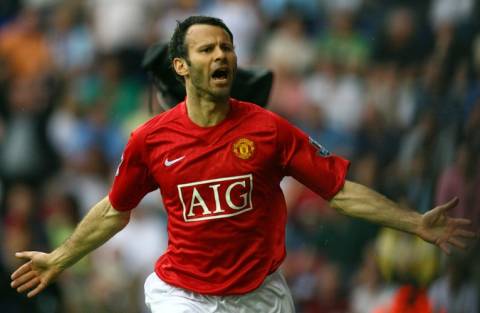Ryan Giggs is used to life in the public eye as a footballer who grew from a dazzling teenage talent at Manchester United into the most-decorated player in English football history.

Giggs is in the spotlight in Manchester once more on Monday as he stands trial on charges of controlling and coercive behaviour against his former girlfriend Kate Greville between August 2017 and November 2020.
The 48-year-old is also accused of assaulting Greville, causing her actual bodily harm, and common assault of her younger sister, Emma Greville, at his home.
Giggs has denied the allegations and pleaded not guilty to all charges.
But the case has already had implications on his coaching career.
Giggs missed the chance to lead Wales to last year's European Championships after being placed on leave by the Welsh FA since November 2020.
He finally resigned from that role in June after Wales qualified for the World Cup under the stewardship of his former assistant Rob Page.
But it is for his exploits on the field for Manchester United that Giggs made his name.
Former United manager Alex Ferguson recalled his first glimpse of the boy who would play a pivotal role throughout his Old Trafford reign.
I remember the first time I saw him, he said. He was 13 and he floated across the ground like a cocker spaniel chasing a piece of silver paper in the wind.
Giggs, who was on Manchester City's books as a youngster, made his league debut for United against Everton in March 1991 at the age of 17.
In his early days the Cardiff-born winger, blessed with explosive pace and a dazzling skill-set, inevitably drew comparisons with 1960s United star George Best, with his ability to torment opposition defenders.
Off the pitch he became a pin-up and was one of the most marketable players as the glitzy Premier League era began.
He was part of the famous Class of 92 alongside David Beckham, Paul Scholes, Gary and Phil Neville brothers, but in terms of honours he outdid them all.
The most iconic moment of his career was his winning goal in the 1999 FA Cup semi-final against Arsenal, when he raced from his own half and slalomed through the Arsenal defence before smashing a shot past David Seaman.
- Treble-winner -
That year United went on to complete an historic treble, their greatest achievement during two decades of almost non-stop success under Ferguson.
But there were countless other moments of magic in a career in which he racked up a club-record 963 appearances over 23 years, scoring 168 goals.
In his later years Giggs evolved from being a dashing winger into a calm, creative midfield presence, remaining a key player as he approached 40.
The Welshman, who won a staggering 13 Premier League titles and two Champions League trophies in a trophy-laden career, finally hung up his boots in 2014.
He briefly served as United interim manager at the end of the 2013/14 season, following the ill-fated tenure of David Moyes, and worked for two years as a coach at Old Trafford under Louis van Gaal.
Giggs was never a vocal leader on the field in the mould of some of his Manchester United teammates, and was not considered automatic management material.
When he was appointed as Wales boss he said he was aware that his status as one of the their greatest players was no guarantee he would succeed at the helm of the national team.
He will hope he has the chance to coach again one day, but for now he is fighting to clear his name as he awaits his day in court.
jw-kca/dj/ea
